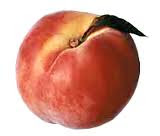and on its boarded door a mark was placed
to save its contents, Ciral had supposed,
from fireplace stokers, who’d think them mere waste.
He’d first come in the store by accident,
exploring long-neglected passageways.
He’d taken out a grate and crawled the vent,
then saw what had been rescued from the blaze.
The candle that he’d lit revealed a door,
the other side of which contained the curse.
Did it apply if one came through the floor?
If so, to linger wouldn’t make it worse.
Besides, he knew what treasures he had seen.
His grandmother had given him a quill
and crossword mag so he knew what words mean,
but warned him to conceal this special skill.
The other kids had sensed that he was smart
but lacked charisma, so he couldn’t lead.
They bullied him, so he would stay apart.
He’d get his power from what he could read.
The curse, of course, would cause him no distress,
and books on human nature would explain:
A widely held belief is often less
a solid fact, and more a type of chain.
A mark: I wonder what kind of symbol might be used to frighten people who had for the most part rejected religion. I suppose that doesn't mean they weren't superstitious.
To conceal: I’m not sure what the purpose is of the compounders’ willing illiteracy, unless to further set Ciral apart from his neighbors.
©2010 Louis A. Merrimac
